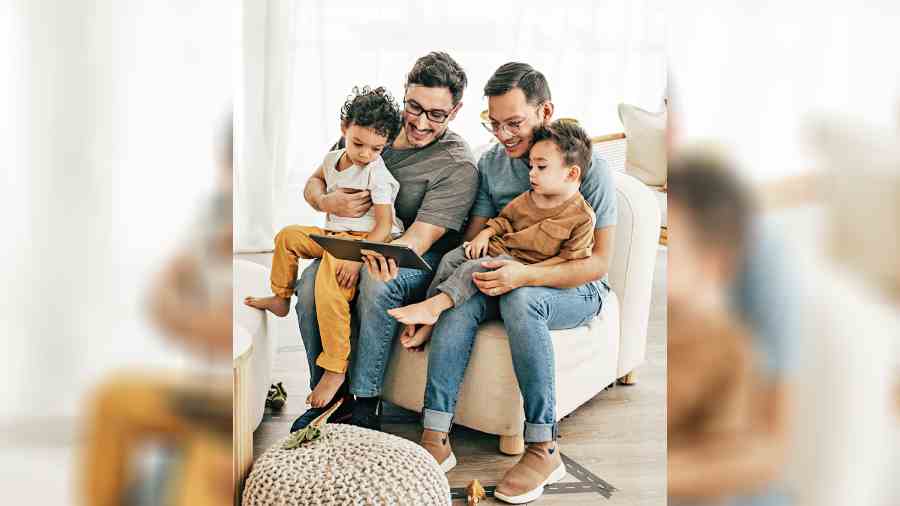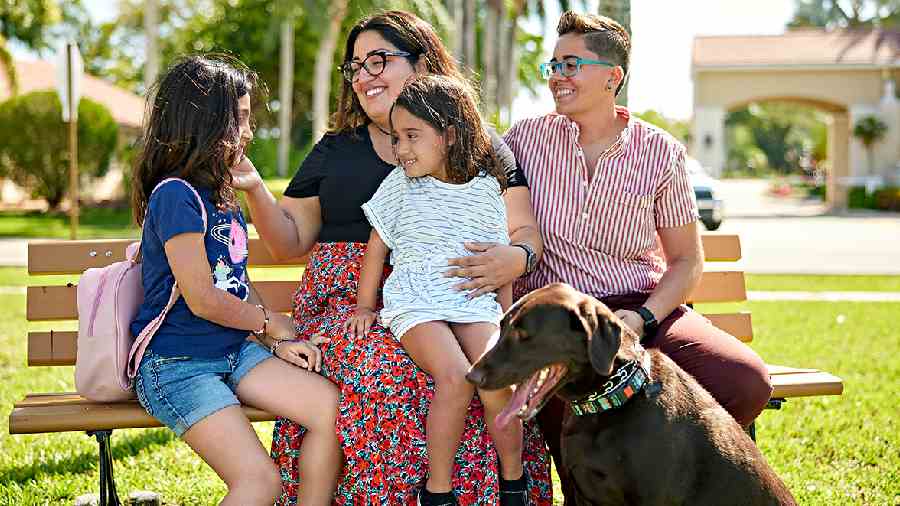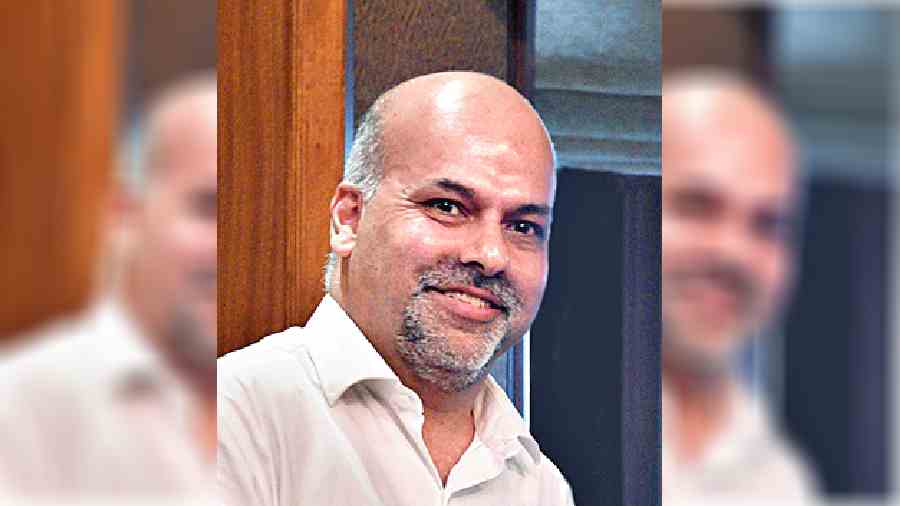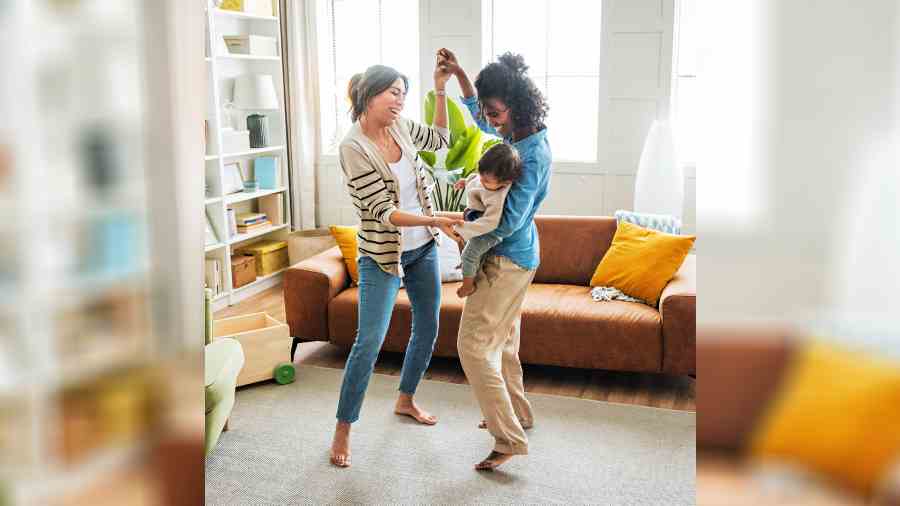The ticker of a TV channel was running a news item highlighting that the Central government was opposing marriage in same sex couples. The TV was on mute but this ticker caught my eyes as I was drinking coffee at the doctor’s lounge in my hospital. Quite a few of my colleagues were present. “Now lesbians will have babies,” said a colleague. The non-approval was evident in his tone. A robust discussion followed. There were several questions and doubts. What is the impact of growing up with parents who are gay/lesbian? How does it affect their minds? Are they more likely to identify themselves as gays/lesbians too?
Globally, over the past few decades the number of children growing up in LGBTQ-parent families has increased dramatically. This has happened due to the shifting sociopolitical and legal climates around the world. There is more favorable attitude towards diverse family forms. The expanded access to assisted reproduction technology and adoption has meant that there are more and more children being raised by parents who are not heterosexuals.
India has not yet legalised same sex marriage. Therefore, same sex couples cannot legally become parents. Societal prejudices play a role. The winds of societal change, however, is forcing us to address this issue head on. India decriminilised homosexuality in September 2018. The logical next step is approval of same sex marriages. The Supreme Court of India is now (April 2023) hearing the arguments on the plea seeking legal validation of same-sex marriages in India. The Supreme Court noted that legalising same sex marriage in India is a “seminal issue” and has decided to constitute a five-member bench to address the issue.
The Central government has opposed the pleas that are seeking legal validation of same-sex marriage. The government believes it would cause complete havoc with the delicate balance of personal laws and accepted societal values.
In an affidavit filed before the apex court, the government submitted that despite the decriminalisation of Section 377 of the Indian Penal Code (which legalises homosexuality), the petitioners cannot claim a fundamental right for same-sex marriage to be recognised under the laws of the country.
Law minister Kiren Rijiju went on record saying the government does not disturb the personal freedom and activities of individuals but the issue related to the institution of marriage was a matter of policy.
Implications of sanctioning same sex marriage
The legalisation of same sex marriage is a complex conundrum because it has implications on numerous other aspects of our social and personal lives. At the core, it is fundamentally an issue about human rights. I feel policy makers and mental health professionals must untie the complexities of this situation and address it in coming years.
For now, I want to focus on couple of implications of sanctioning same sex marriage.
If it is to be legalised, would it really cause havoc in societal values? Will it be detrimental for the development of children?
Same-sex marriage, also known as gay marriage, is the marriage of two people of the same legal sex. As of 2023, marriage between same-sex couples is legally performed and recognised in 34 countries. Adoption rights are not necessarily covered, though most states with same-sex marriage allow those couples to jointly adopt as other married couples can.
In contrast, 34 countries (as of 2021) have definitions of marriage in their constitutions, that prevent marriage between couples of the same sex. Some countries, such as China and Russia, even ban advocacy for the legal recognition of same-sex marriages.
Has there been more “chaos” at the societal level in the countries which has legalised same sex marriages, in contrast to countries that have not? I doubt it. Do Indians believe that social order depends on restricting marriage for heterosexuals only?
On the contrary, research shows that the financial, psychological, and physical well-being of gay people are enhanced by marriage. Research also indicates that the exclusion of gays/lesbians from marriage stigmatises and invites public discrimination against them. It merely perpetuates the myth that they are not worthy of equal rights.
Children being raised by gay/lesbian couples

Current research shows that children with gay and lesbian parents do not differ from children with heterosexual parents in their emotional development or in their relationships with peers and adults
The second aspect that I want to raise is the effect on children. Parenting is a complex and often arduous task. There are an infinite number of variables that influence parenting skills. Can sexuality of the parents be the sole deciding factor regarding their parenting skills? It obviously cannot. Presumption of incompetence regarding parenting ability, merely because someone is gay or lesbian, is hopelessly naïve, myopic, and discriminatory. Therefore, is it logical to negate the rights of LGBTQ community to have children or adopt? Let us look for answers in scientific research.
While I was researching for this article, I realised that often science and policies of institutions need not be synchronous. Institutional or governmental policies may not keep track of scientific advances and hence can be “unscientific”. Examples are innumerable. So I was curious to find out what the institutions globally think about parenting capabilities of the LGBTQ community.
UK laws, which basically are the template for Indian jurisprudence, have legalised parenting rights of married gay couples, unmarried gay couples and single gay persons. All major US organisations, like American Bar Council, American Medical Association, and American Psychiatric Association and so on, also approve parenting rights of gay persons. It would be naive to assume that all these institutions have been thoughtless and not exercised due diligence before giving the green signal to the rights of the LGBTQ community as parents.
In India, single men or women can adopt. There is no caveat on sexuality. Single men cannot adopt a girl child in India, but a single woman can adopt both a girl or a boy child. Therefore, a person belonging to the LGBTQ community can adopt if he or she is single. The current state of thinking at the Central government level is if gays and lesbians are allowed to marry a same sex partner (and consequently allowed to raise children) it may cause “societal havoc”. Does that sound logical? To me, it does not.
Coming back to the more vexed issue of children being raised by gay/lesbian couples. Does it affect the psychological well-being of the children in comparison to those children whose parents are heterosexuals?
I personally believe that sexual identity of the parents per se is a non-issue with respect to his/her parenting skills. However, there is an old aphorism that it takes a village to raise a child. So, what happens if the members living in the village believe that LGBTQ couples are an aberration? The stigma inflicted by the society at large then can have a negative impact on the emotional well-being of the child rather than the sexual identity of the parents. It is the hurtful prejudices that can inflict pain rather than whether my father or mother is gay or lesbian. The child may be bullied in school by his/her peers and maligned by teachers because of who their parents are.
Longitudinal research shows that children with gay and lesbian parents are as well-adjusted as children with heterosexual parents, but they can face some additional challenges. Some LGBT families face discrimination in their communities, and children may be teased or bullied by peers.

There are multiple benefits legalising same sex marriages. It can provide those in committed same-sex relationships with relevant government services and make the couple financially secure.
Good and bad times
Current research also shows that children with gay and lesbian parents do not differ from children with heterosexual parents in their emotional development or in their relationships with peers and adults. It is important for all of us to understand and accept that it is the quality of the parent/child relationship and not the parent’s sexual orientation that influences a child’s development.
Research has shown that in contrast to common beliefs, children of lesbian, gay, or transgender parents:
- Are not more likely to be gay than children with heterosexual parents.
- Are not more likely to be sexually abused.
- Do not show differences in whether they think of themselves as male or female (gender identity) in comparison with children reared by heterosexual parents.
- Do not show differences in their male and female behaviours (gender role behavior)
I have professionally seen a handful of children who are raised by single gay parents. What I advise their parents, when they have visited me with anxiety regarding discussing their relationship status or sexual identity are:
- Allow open communication and discussions that are appropriate to your child’s age and level of maturity. If the parent is defensive or hesitant about his or her sexual identity, the child too will imbibe that stigma.
- Help your child come up with and practice appropriate responses to teasing or mean remarks when and if that happens.
- Consider having a support network for your child (for example, having your child meet other children with gay parents).
- If possible, consider living in a community where diversity is more accepted.
Like all children, most children with LGBT parents will have both good and bad times. They are not more likely than children of heterosexual parents to develop emotional or behavioral problems.
I believe, based both on my own experience as a professional helping parents and research findings, that there are multiple benefits legalising same sex marriages. It can provide those in committed same-sex relationships with relevant government services and make the couple financially secure. It also gives them legal protections such as inheritance and hospital visitation rights.
Opposition is based on claims such as: Homosexuality is unnatural and abnormal, that the recognition of same-sex unions will promote homosexuality in society, and that children are better off when raised by opposite-sex couples. According to major medical organisations, these claims are refuted by scientific studies and homosexuality is a natural and normal variation in human sexuality. Sexual orientation is not a choice, and children of same-sex couples fare just as well as the children of opposite-sex couples.
I feel it is only a matter of time, not if but when same sex marriages are legalised in India. Let us start shedding our prejudices, unscientific beliefs and prepare ourselves to embrace the future.
PS: For the sake of brevity and for the fact that this is not a research article, I have not given any references for the scientific studies that I have referred to. I can send them to anyone, if requested.

Dr Jai Ranjan Ram is a senior consultant psychiatrist and co-founder of Mental Health Foundation (www.mhfkolkata.com). Find him on Facebook @Jai R Ram
